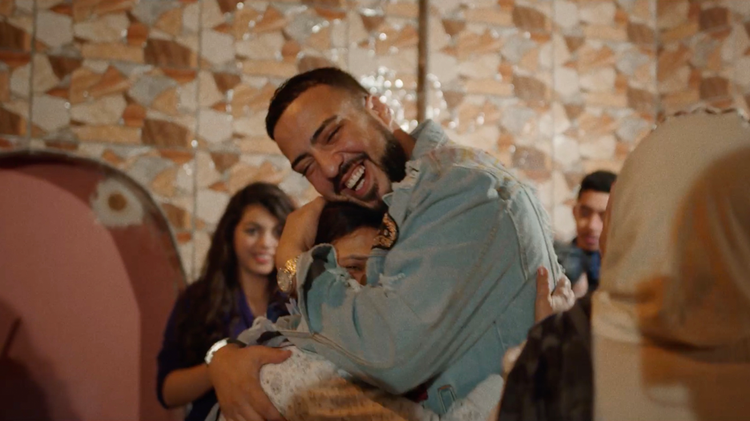Filmmaker Sofia Kerpan uses Adobe Premiere Pro to showcase French Montana’s life journey in Tribeca documentary, “For Khadija”

Image Source: Tribeca Film Festival.
One of the highly anticipated films at Tribeca Film Festival features multi-platinum recording artist French Montana in his new documentary, “For Khadija”. French gives us a deeper look into his life through his own lens, highlighting his immigrant journey from Morocco to the South Bronx in New York City at the age of 13. The documentary, which was named after his mother, offers a raw portrayal of his family’s story, encompassing the challenges and obstacles they faced while trying to make it in America. Ultimately, at its core, the film serves as a heartfelt tribute to the relationship and love shared between him and his mother, Khadija.
Sofia Kerpan, who co-edited the film with Eva Dubovoy, relied on Adobe Premiere Pro to convey this vulnerable story and capture the heartwarming moments of French’s life.
“ For Khadija” premiered at Tribeca on June 16. Read below to hear about Sofia’s approach to editing the film alongside her co-editor and close friend, Eva.
How and where did you first learn to edit?
It was very "learn as you go" for me. Back then, my friends and I used to document our lives and make music videos for local artists in Chicago. I learned the basics of editing, and I'd go on YouTube or Google to research anything I didn't know how to do. Eventually, as it became my profession, I transitioned to Adobe Premiere Pro.
How do you begin a project/set up your workspace?
It always starts with just watching all the footage, everything.
Tell us about a favorite scene or moment from this project and why it stands out to you.
I love all the heartwarming scenes where French Montana is seen with his family — particularly his mother, who the film is dedicated to. I think one of the most interesting scenes to cut was the scene about French’s estranged father because it always carried some complicated emotions for me. His father's choice to leave the family when French was young, in a lot of ways motivated him to become the global superstar he is today. I think about the bittersweetness of that — how the origins of fame are often more complicated than we think.
What were some specific post-production challenges you faced that were unique to your project? How did you go about solving them?
It was the first feature-length project for both me and my co-editor, the incredibly talented Eva Dubovoy, who is also a close friend. So honestly, the whole thing felt pretty new, but we were up for the challenge. It was different working in a longer format at first, and we had to really focus on keeping family at the center of the story, which could get difficult with someone like French who is larger than life in a lot of ways.
What Adobe tools did you use on this project and why did you originally choose them? Why were they the best choice for this project?
I have been using Premiere Pro for about 7 or 8 years, so it was natural to stick with it. I know a lot of people typically work in other editing platforms for feature projects, but at the time, Eva and I were both well-versed in Premiere Pro and wanted to do it our way.
Also, I've found Frame.io to have the sleekest interface and the best collaboration tools, so I use it very often. I use it to share videos with clients for review and feedback, and I also archive a lot of my work there for my own sanity.
If you could share one tip about Premiere Pro, what would it be?
Definitely make yourself aware of new features when there are updates because they are listening to what editors want to be able to do. For example, the Transcription tool is a newer feature that has been game-changing when working with on-camera interviews.
Who is your creative inspiration and why?
That's not a simple question! I don't know, there's a lot and they change. I think anytime I finish an edit I'm inspired by myself!
What’s the toughest thing you’ve had to face in your career and how did you overcome it? What advice do you have for aspiring filmmakers or content creators?
I overworked a lot and did a lot of free or low-budget work early on. There was definitely a time for that. Now, I'm at a different place and am represented by Modern Post. They have an incredible reputation and provide me with so much support and opportunity. When you're transitioning between those two spaces though, it can be difficult to feel secure because you're used to being a certain way. I used to worry I'd lose the relationships I worked so hard for when I decided to switch up how I saw myself and my value, but to my surprise, everyone that I was always loyal to was loyal to me and wanted me to grow and evolve just as much.